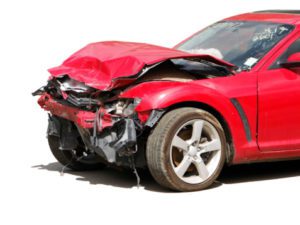Being involved in an auto accident can be a distressing experience, but it is crucial to remain calm and collect vital information from the other driver involved. Obtaining accurate details helps ensure a smooth insurance claim process and allows for effective communication with the necessary parties. In this blog, we will discuss the essential information you should gather from the other driver at the scene of an accident.
- Personal Information:
Start by exchanging personal information with the other driver. The use of Smart phone cameras can be very helpful in collecting the necessary information especailly the license plate as that is perhaps one of the most critical pieces of information you will need.
Be sure to obtain the following details:
a. Full Name: Request the other driver’s full name and provide yours in return. This helps establish a clear identification for both parties involved.
b. Contact Information: Ask for the other driver’s phone number, email address, and physical address. Likewise, provide your own contact details.
c. Driver’s License: Verify the other driver’s license number and state of issue. This information is vital for accurate identification and later reference. Take a photo of the license with your smart phone if you do not have a pen
- Insurance Details:
To ensure a smooth claims process, it’s essential to gather insurance-related information from the other driver. These details include:
a. Insurance Company: Ask for the name of the other driver’s insurance company. If possible, request the contact number for their insurance agent or claims department. b. Policy Number: Obtain the other driver’s insurance policy number. This is crucial for initiating the claims process and establishing communication with the insurance company. c. Expiration Date: Note down the expiration date of the other driver’s insurance policy. It’s important to confirm that their coverage is valid at the time of the accident.
- Vehicle Information:
Accurate information about the other driver’s vehicle is crucial when filing an insurance claim. Collect the following details:
a. License Plate Number: This is VERY IMPORTANT as insurance follows the vehicle. Note down the license plate number of the other driver’s vehicle or take a photo of the license plate. This information assists in identifying the specific vehicle involved in the accident.
b. Make and Model: Ask the driver about the make, model, and color of their vehicle. These details help identify the specific vehicle during the claims process. You can also get this information of fhte registration. Again take a photo of the registration if you do not have a pen.
c. Vehicle Identification Number (VIN): If possible, obtain the VIN of the other driver’s vehicle. The VIN is a unique identifier that can provide additional information about the vehicle’s history. This is also on the registration
- Witness Information:
If there were any witnesses to the accident, it’s beneficial to gather their information as well. Witnesses can provide unbiased accounts of the incident and support your insurance claim. Obtain their names, contact information, and a brief description of what they witnessed.
- Accident Details:
Besides the driver’s information, gather essential details about the accident itself. This information includes:
a. Date and Time: Note the exact date and time of the accident. Accuracy in documenting this information is crucial.
b. Location: Record the specific location of the accident, including the street name, intersection, or any nearby landmarks. c. Description of the Accident: Ask the other driver for their account of how the accident occurred. While it’s important to remain calm and respectful, try to gather as much information as possible without assigning blame.
Conclusion:
Being involved in an auto accident can be a stressful experience, but gathering the necessary information from the other driver will help streamline the insurance claim process. By obtaining personal information, insurance details, vehicle information, and witness accounts, you’ll have a comprehensive record to provide your insurance company. Remember, maintaining a calm and respectful demeanor while collecting information is essential. Hopefully, you’ll never have to use this knowledge, but being prepared for such situations is always beneficial.
Note: It’s important to consult with your insurance agent or carrier to ensure you comply with local laws and regulations pertaining to accidents and insurance claims.


